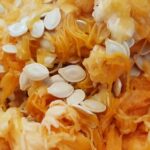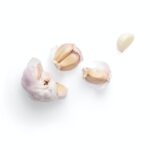This Autumn make sure that you keep your immune system healthy by eating these foods!
Red Capsicum
Red Capsicum is one of the greatest sources of vitamin C, an essential nutrient for immune health due to its anti-viral and anti-oxidant effects. Don’t like red capsicum? Purple cabbage, broccoli, kiwi fruit, oranges, and strawberries are also rich in vitamin C.
Pumpkin seeds
Pumpkin seeds (pepitas) are an excellent source of zinc. Zinc has anti-inflammatory and anti-oxidant properties and is considered a “gatekeeper” for the immune system, as immune system cells are dependent on zinc for their function.
It’s easy to add pumpkin seeds into your diet. For breakfast, you can sprinkle them on top of avocado toast, porridge, or add to muesli. For lunch and dinner, they can easily be added as a crunchy topper and can be added to mixed nuts for a nutritious snack!
Seafood (especially oysters), red meat, poultry, and green peas are also great dietary sources of zinc.
Salmon
Salmon is rich in Omega 3, an essential fatty acid with anti-inflammatory and immunomodulatory effects. Omega 3 supports the immune system to have appropriate responses to antigens, such as viruses, bacteria, and pollens. It is found most abundantly in oily fish such as salmon, sardines, and mackerel, and in smaller amounts in nuts and seeds, including flax seeds, chia seeds, and walnuts.
Garlic
Garlic has been used for centuries for its medicinal properties. Modern research has revealed garlic contains an organosulphur compound called allicin, which is responsible for garlic’s anti-bacterial effects. Allicin has shown to inhibit the growth and reproduction of bacteria and can improve the efficacy of some antibiotics. Allicin is produced when garlic is chopped or minced and can take up to 10 minutes. So when cooking with garlic, mince or chop and wait 10 minutes before cooking.
 Sunshine
Sunshine
The sun is the greatest source of vitamin D, with oily fish, red meat, and egg yolks as dietary sources.
Vitamin D has an immunomodulatory effect on the immune system, meaning it helps the immune system respond appropriately to any threat. As our Vitamin D levels generally decline in the colder months due to less time spent outdoors, it is worthwhile having your vitamin D levels checked by your GP.
Living in Sydney, we are fortunate to get sunny days during the colder months. However, with so many of us working indoors, we often don’t get outside enough. Making a conscious effort to get some sunshine during the middle of the day and exposing some skin will increase your intake of vitamin D.
For an individualised dietary assessment, you can book a nutrition consult on the Body of Life website or speak to one of our receptionists at (02) 9453 3046.


